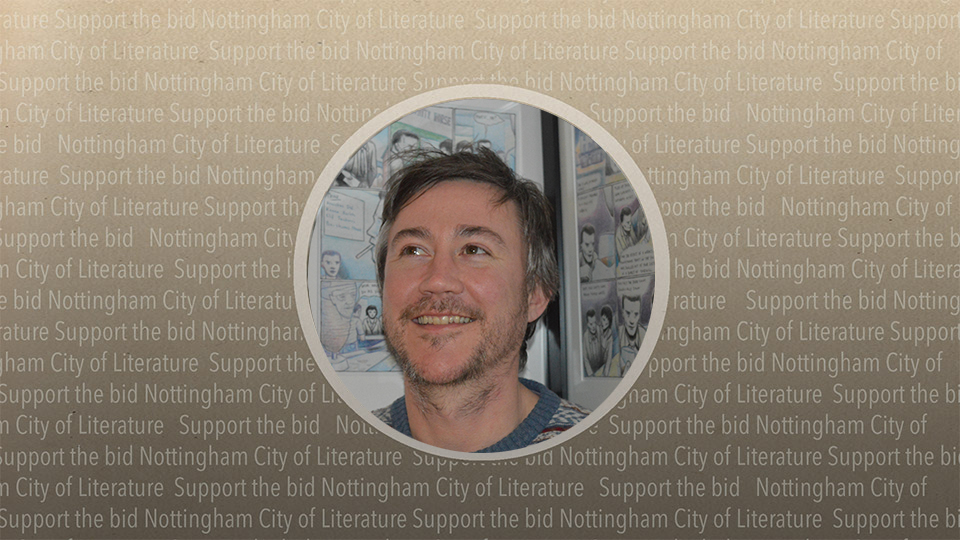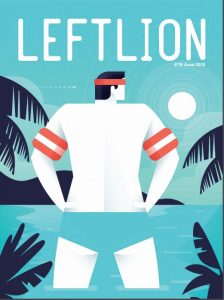 I haven’t blogged about LeftLion for a while so this post is well overdue. The timing is important too as I’ve recently resigned as a director of Nottingham City of Literature. No mardies or drama. Just time to give up my seat so that someone else can sit down. The City of Lit team is comprised of representatives from 8 organisations and I was representing the Nottingham Writers’ Studio (I was Chair from 2012-15). But to be perfectly honest, I always thought of myself in terms of LeftLion and as an individual digital storyteller.
I haven’t blogged about LeftLion for a while so this post is well overdue. The timing is important too as I’ve recently resigned as a director of Nottingham City of Literature. No mardies or drama. Just time to give up my seat so that someone else can sit down. The City of Lit team is comprised of representatives from 8 organisations and I was representing the Nottingham Writers’ Studio (I was Chair from 2012-15). But to be perfectly honest, I always thought of myself in terms of LeftLion and as an individual digital storyteller.
LeftLion played two crucial roles leading up to the bid. The first was through a series of magazine articles called the Nottingham Essay which focussed on key literary figures. These have since transformed into photoessays courtesy of some very talented NTU placement students for Dawn of the Unread. Secondly, we created a literature podcast so that all of our wordy propaganda could be felt in broadcasts as well as in print. This is produced by NG Digital and is broadcast once a month.
The June issue of LeftLion epitomises LeftLion’s commitment to literature. The sheer volume and variety of topics we’ve covered in one issue is staggering. The LeftLion editor Ali Emm should be given particular credit here for being so supportive and encouraging. There aren’t many editors who would let me get away with being such a potty mouth in the name of art, such as the ‘Is Lady C worth a wank?’ article. Ali also had the intelligence (and guts) not to delete ‘cunt’ from my article about D.H Lawrence and censorship. It would have made us look a right bunch of c***s given it was being used appropriately within the context of the article.
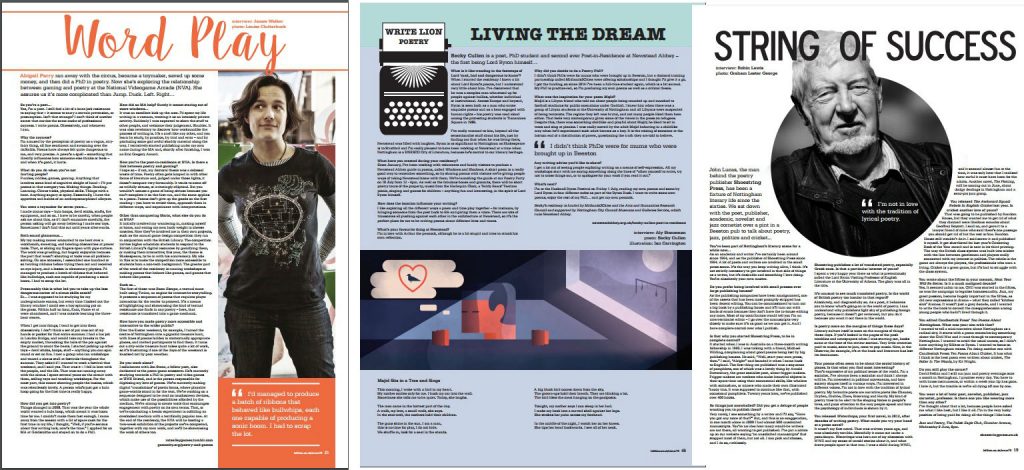
Elsewhere in the mag I did an interview with the supremely talented Abigail Parry, the poet-in-residence at the National Video Game Arcade and our Poetry Editor Aly Stoneman interviewed Becky Cullen, the poet-in-residence at Newstead Abbey. Our Deputy Literature Editor Robin Lewis spoke to John Lucas, a poet, emeritus professor, publisher and jazz musician.
The Dilettante Society are an art collective “that’s about creativity and historical interest, a little bit of mischievous activity and writing” said founder Lady C. “Our aim is to encourage imagination and local interest, with a little bit of absurdity thrown in for good measure.” They produce lovely gazettes which can be found in various cafes across the city and we’ve since given them a regular slot to promote what they’re doing. Supporting grassroots culture was one of the key aims of the City of Literature bid and LeftLion have been doing this since we formed a long time ago in a galaxy far far away. This issue they look at one of Lord Byron’s lesser known relatives.
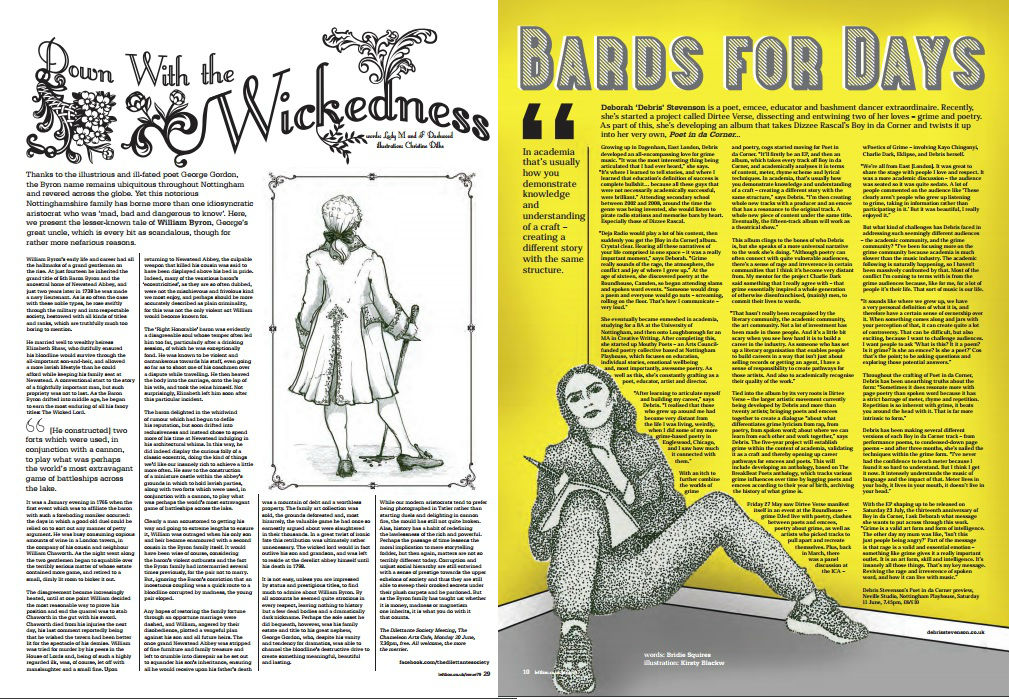
The Mouthy Poets were another central part of the UNESCO bid and founding member Debris Stevenson is featured discussing her innovative contribution to NEAT16 that will see an infusion of grime, rap and poetry. I remember interviewing Deborah five years ago when Mouthy Poets were still in their nappies. Now Mouthy are the highest funded poetry collective by the Arts Council, have a load of live shows under their belt, and are quite simply the most energetic and aspirational group of poets on the block.
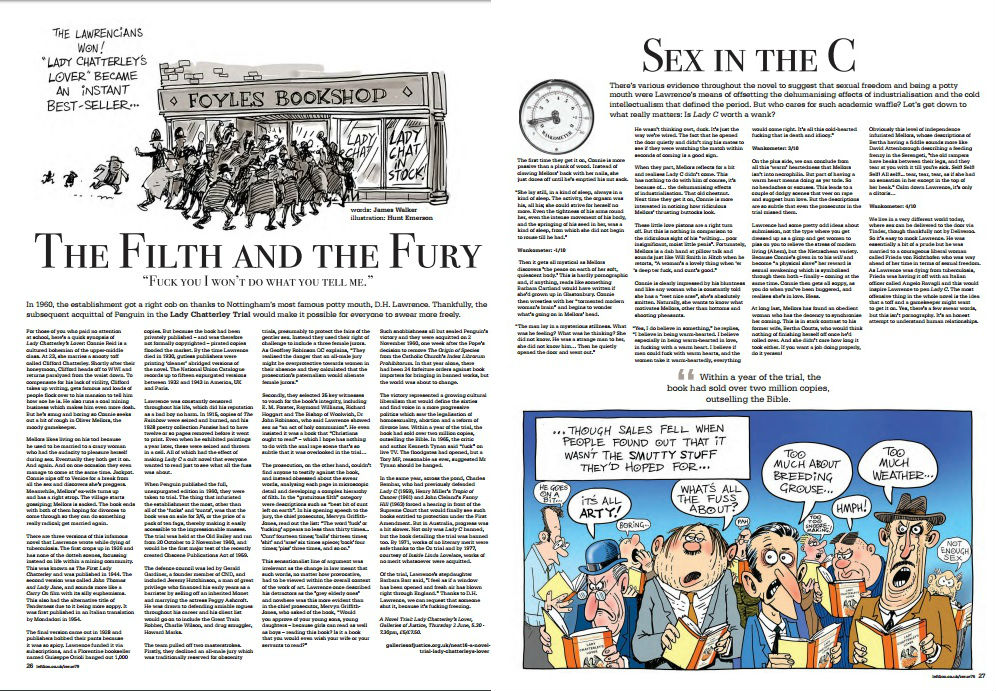
NEAT16 was one of the events the City of Literature team promised to deliver in their application so we’ve giving this as much coverage in the magazine as possible. My Lady C article relates to the Novel Trial performance at the Galleries of Justice on 2 June, Debris Stevenson’s Poet in Da Corner is on 11 June, and there was also room to have a natter with Midlands Theatre Company LaPelle’s Factory whose Cloudcukoolanders celebrates all things dysfunctional on 5 June. Neatly rounding up theatre related articles was an interview with Rachel Young. I, Myself and Me is the result of a BBC Performing Arts Fellowship that’s been touring the country and stops back off home on 9 June.
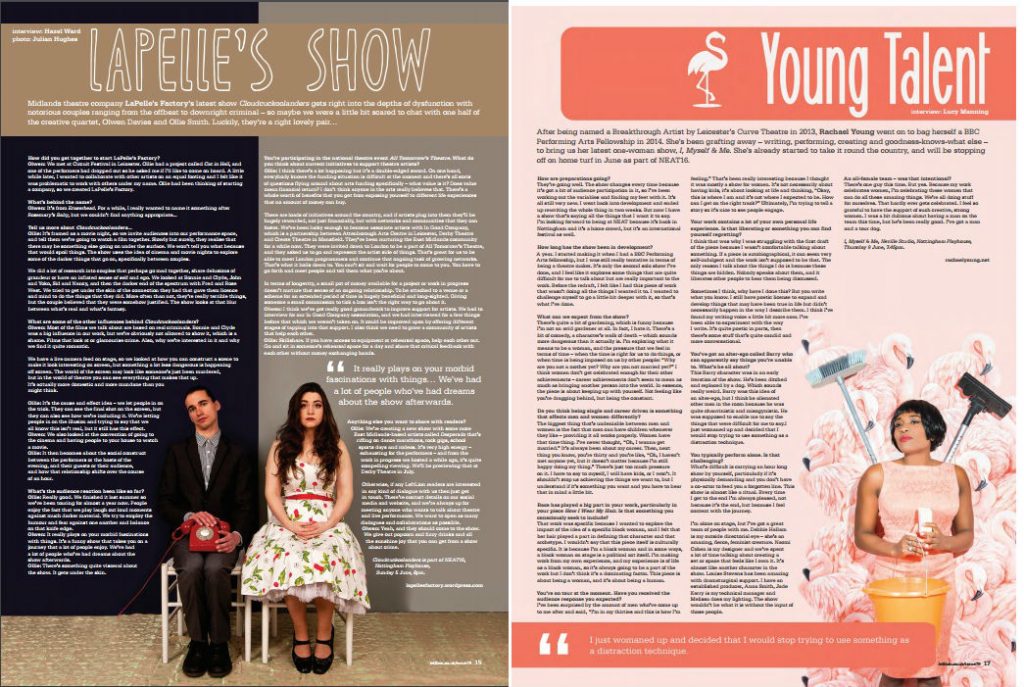
LeftLion also creates space for writers to promote their books or plans for books. Wayne Burrows’ Advertising Sectioned was originally conceived as a means of giving him the opportunity to sift through various cuttings and put together a themed collection exploring local advertising which he can then pitch to a publisher when complete. Likewise, Street Tales draws attention to Joe Earp and the Nottingham Hidden History Team. I met Joe a few years ago and was delighted when he agreed to do the column. Now he’s got a couple of books out, hopefully his presence in our monthly rag will help him shift a few copies.
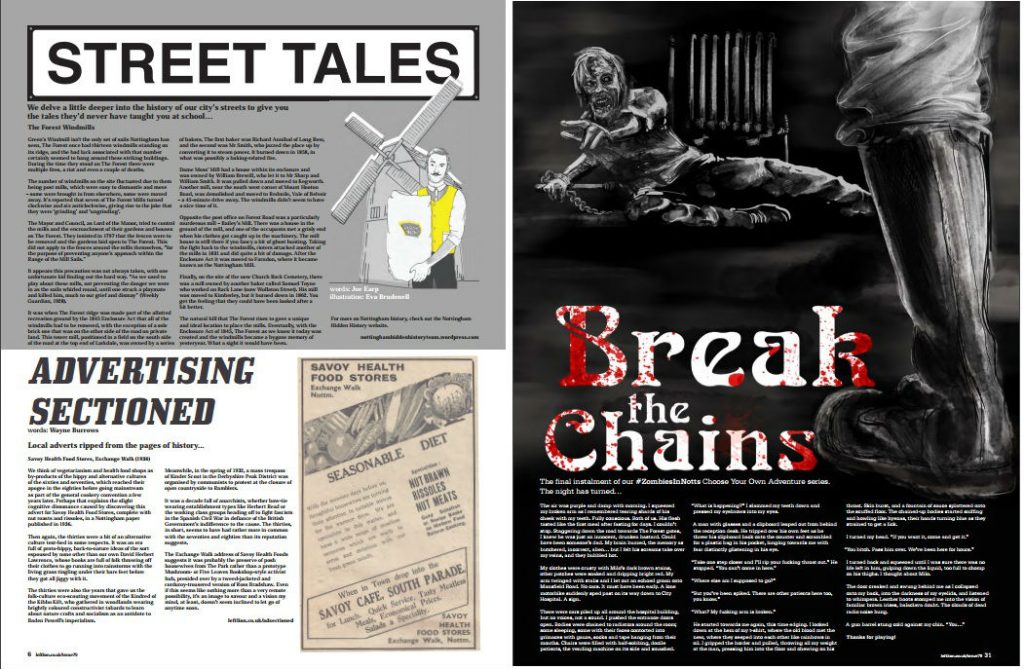
And last but not least is our ‘choose your own ending’ zombie serial (#ZombiesinNotts) which has been determined by our readers and written anonymously by some of our fulltime in-house writers. This feature is a nod to the Choose Your Own Adventure serials started in 1976 by Edward Packard and is just meant to be a bit of daftness.
I have been writing for LeftLion now for around 13 years. No magazine offers such complete freedom of expression when it comes to style of writing or topic of writing. Our June issue is an absolute kick in the bollocks for anyone who thinks reading is dead. Having said that, our editor in chief, Jared Wilson, is on the lookout for Vloggers and LeftLion is slowly edging towards becoming a multimedia channel. This will inevitably mean more videos and less words which will mean readers will become viewers. Let’s not get too smug. Let’s just enjoy the moment. For now, words rule. IDT. INDST.

